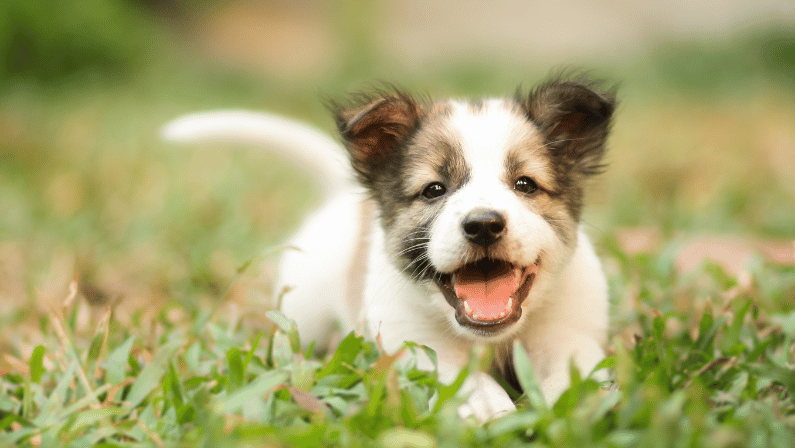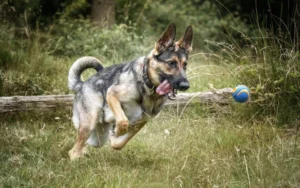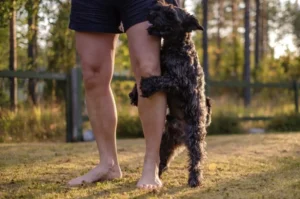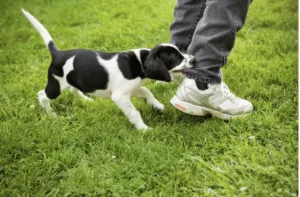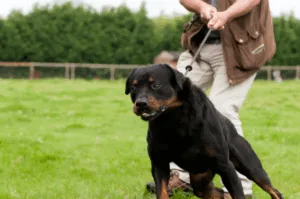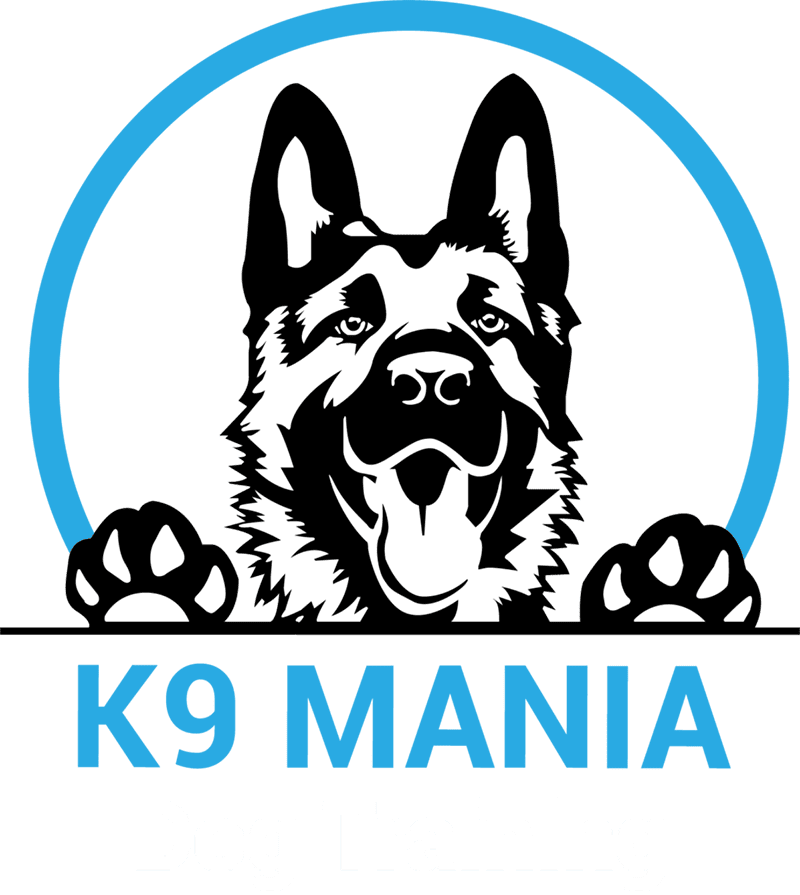Discover effective strategies for addressing and redirecting aggressive behavior in your puppy. Understand the root causes and take proactive steps toward fostering a happier relationship with your dog.
Welcoming a puppy into your home is a joyous occasion, but dealing with aggressive behavior can be challenging. In this guide, we’ll delve into the causes of puppy aggression and offer effective strategies to address and redirect it, fostering a safe and harmonious environment for both you and your puppy.
Why It's Important to Address Puppy Aggressive Behavior Early
Addressing puppy aggressive behavior early is crucial for several reasons. Firstly, unchecked aggression can escalate as the puppy grows, potentially leading to more severe incidents and behavioral problems in the future. Additionally, early intervention allows for easier correction and redirection of behavior, as puppies are more adaptable and receptive to training during their formative stages.
By addressing these issues promptly, owners can help their puppies learn appropriate ways to interact and communicate, setting a solid foundation for a well-adjusted and well-behaved adult dog. Moreover, addressing aggression early demonstrates a commitment to the puppy’s welfare and ensures a safer and more enjoyable living environment for everyone involved.
Understanding Puppy Aggression
Puppy aggression is a complex behavior that stems from a combination of genetic predispositions, environmental influences, and early life experiences. It’s essential to grasp that aggression in puppies isn’t indicative of an inherently hostile nature but rather a response to specific stimuli or situations. For instance, a lack of socialization during the critical developmental period can lead to fear-based aggression, while frustration from unmet needs or boundaries can manifest as reactive behavior.
By delving into the root causes and triggers of aggression in puppies, owners can gain insights into their dog’s mindset and effectively address the issue through targeted interventions and personalized techniques. This understanding empowers owners to create a supportive environment that fosters healthy socialization, emotional well-being, and, ultimately, a stronger bond with their dogs.
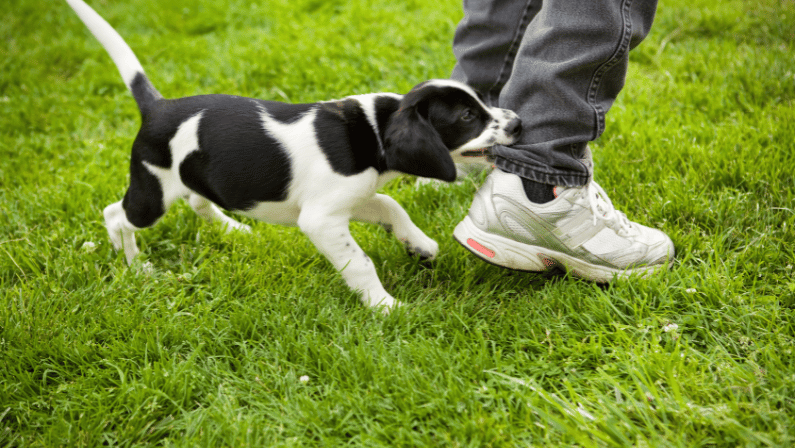
What are Common Signs of Aggression in Puppies?
- Growling: Puppies may growl as a warning signal when they feel threatened, anxious, or uncomfortable in a particular situation.
- Biting or Nipping: Playful mouthing is typical behavior in puppies, but aggressive biting that causes pain or leaves marks can indicate underlying issues.
- Snapping: Sudden snapping motions, especially when accompanied by a defensive posture or showing teeth, can signal aggression or discomfort.
- Lunging: Puppies may lunge forward aggressively, especially when feeling territorial or protective of resources such as food, toys, or sleeping areas.
- Raised Hackles: Raised fur along the back, known as hackles, can indicate heightened arousal or aggression in response to perceived threats.
- Stiff Body Language: A stiff and rigid body posture, with ears pinned back and tail held high or tucked between the legs, often accompanies aggressive displays.
- Intense Staring: Prolonged, direct eye contact combined with a tense facial expression may indicate a readiness to challenge or confront.
- Snarling: Low, rumbling vocalizations accompanied by bared teeth and curled lips signal an escalated level of aggression and potential readiness to attack.
- Resource Guarding: Aggressive behavior around food, toys, or other possessions, such as growling or snapping when approached, indicates possessive tendencies.
- Escalating Behavior: Aggression that escalates in intensity over time, despite attempts to redirect or diffuse the situation, warrants attention and intervention from owners or trainers.
Common Causes of Puppy Aggression
- Lack of Socialization: Puppies that haven’t been adequately exposed to various people, animals, and environments during their critical socialization period (typically between 3 and 14 weeks of age) may exhibit fear-based aggression towards unfamiliar stimuli.
- Rough Play: Rough or aggressive play with littermates or humans during puppyhood can inadvertently reinforce aggressive behaviors, as puppies may not learn appropriate limits and boundaries.
- Resource Guarding: Puppies may display aggression when they feel their possessions, such as food, toys, or sleeping areas, are threatened or approached by others.
- Fear and Anxiety: Puppies experiencing fear or anxiety due to loud noises, unfamiliar surroundings, or traumatic experiences may resort to aggression as a means of self-defense or coping mechanism.
- Pain or Discomfort: Physical discomfort from teething, injury, or underlying health issues can trigger defensive aggression in puppies when touched or handled.
- Overstimulation: Like humans, puppies can become overwhelmed by excessive excitement, leading to reactive behaviors such as biting, nipping, or growling.
- Lack of Structure and Boundaries: Inconsistent discipline and unclear boundaries can confuse puppies, leading to frustration and the development of dominant or aggressive behaviors as they attempt to assert control.
- Genetic Predisposition: Some breeds may have a genetic predisposition towards certain types of aggression, although proper socialization and training can mitigate these tendencies.
- Understanding these common causes of puppy aggression is the first step towards addressing and managing the behavior effectively, ultimately fostering a well-balanced and harmonious relationship between you and your dog.
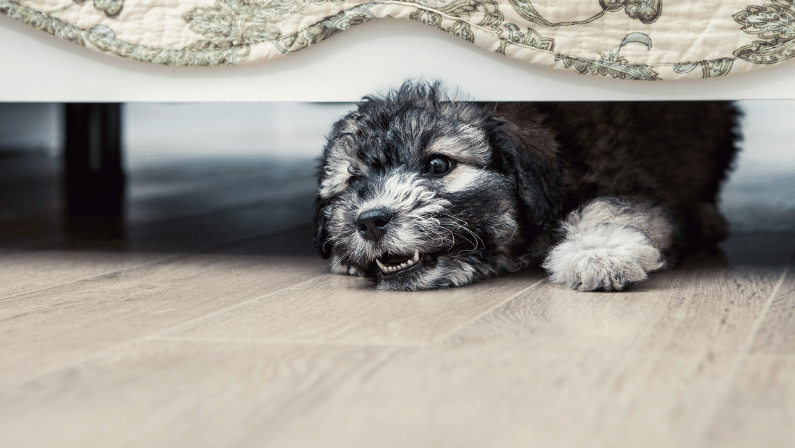
How to Stop Aggressive Behavior in Your Puppy
If your puppy shows aggression, it’s important to address it early on for a better bond between you two. This section will show you easy ways to deal with and change this behavior, making your time together more enjoyable and peaceful.
Redirect with Fun
Reward Calmness
Encouraging calm behavior in your puppy is crucial for reducing aggression. When your puppy is calm, like sitting quietly or lying down, praise and reward them. This teaches them that being calm is good and earns positive attention. Consistently reinforcing calm behavior helps reshape their actions, steering them away from aggression over time. Patience and consistency are essential for success with this method.
Time Outs for Tantrums
When your puppy acts aggressively, using timeouts can help. Just like with kids, calmly remove your puppy from the situation and place them in a quiet spot for a few minutes. Avoid scolding and use this time to calm them down. With consistency, this method can teach your puppy that aggression isn’t acceptable.
Mastering Commands
Training your puppy to obey basic commands is crucial for managing and redirecting aggressive behavior effectively. Commands like “sit,” “stay,” and “leave it” provide you with tools to assert control in challenging situations and help your puppy focus their attention elsewhere.
Consistent and patient practice of these commands strengthens the bond between you and your puppy while instilling discipline and respect. By mastering commands, you can redirect your puppy’s focus and prevent aggressive outbursts, fostering a more harmonious relationship built on trust and cooperation.
Boundaries and Building Confidence
Setting clear boundaries and boosting your puppy’s confidence is key to curbing aggression. Consistent training helps define acceptable behaviors and teach appropriate responses. Establishing boundaries, like teaching patience for food, reduces anxiety and aggressive tendencies. Meanwhile, socialization and positive experiences build confidence, reducing fear-based aggression.
Socialization is Key
Socialization plays a crucial role in curbing aggressive behavior in puppies. Exposing your puppy to various people, animals, and environments from an early age helps them feel comfortable and confident in different situations, reducing the likelihood of fear-based aggression.
Arrange supervised playdates with other friendly dogs, introduce them to different sounds and stimuli, and encourage positive interactions with people of all ages to build their social skills. Remember to keep these experiences positive and rewarding to instill a sense of security and trust in your puppy, laying the foundation for well-adjusted behavior as they grow.
Structured Playtime
Structured play is essential for managing puppy aggression. Set clear rules during play sessions, using interactive toys like tug-of-war ropes or fetch to engage your puppy. Redirect any signs of aggression to appropriate toys, reinforcing good behavior and strengthening your bond.
Seek Professional Dog Training Help
Sometimes, despite our best efforts, managing a puppy’s aggressive behavior can be challenging. In such cases, seeking professional dog training help can provide valuable guidance and support. Trained professionals have the expertise to assess your puppy’s specific needs and design a customized training plan tailored to address their aggression effectively.
At K9 Mania Dog Training, our experienced trainers specialize in understanding and modifying puppy behavior, including aggression. Through personalized training sessions, we can assess your puppy’s specific needs and develop a customized training plan tailored to address their aggression effectively.
Tips to Prevent Puppy Aggression?
Preventing aggression in your puppy is key to fostering a positive and safe environment.
- Here are some effective strategies:
- Early Socialization: During their critical socialization period, introduce your puppy to various people, animals, and environments to help it feel comfortable and confident in different situations.
- Consistent Training: Establish clear rules and boundaries for your puppy and consistently enforce them to prevent confusion and frustration.
- Supervised Playtime: Monitor interactions between your puppy and other dogs or people to intervene if play becomes too rough or escalates into aggression.
- Gentle Handling: Handle your puppy gently and positively to prevent fear or discomfort, which can lead to defensive aggression
By implementing these preventative measures, you can help your puppy develop into a well-adjusted and non-aggressive adult dog.
Solve Puppy Aggression with K9 Mania
Addressing and redirecting aggressive behavior in your puppy is essential for fostering a strong bond and a safe environment. By understanding the root causes and implementing effective strategies early on, you pave the way for a happier relationship with your dog.
Remember that every puppy is unique, and seeking professional guidance, like that offered at K9 Mania Dog Training, can provide valuable support on this journey. With their expertise and your dedication, you’re not just training a puppy; you’re nurturing a lifelong companion, ensuring countless moments of companionship ahead.
Contact us now and transform your puppy’s behavior today!

